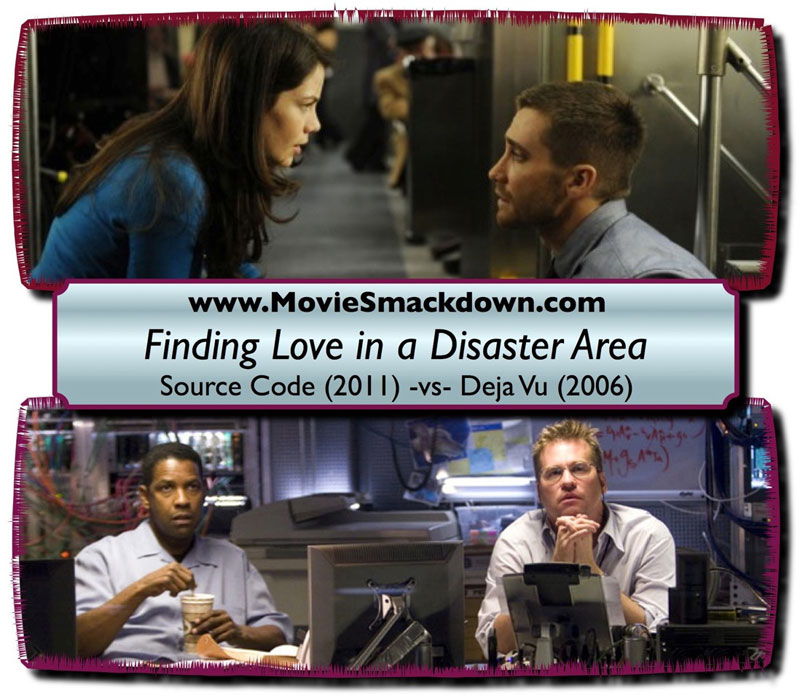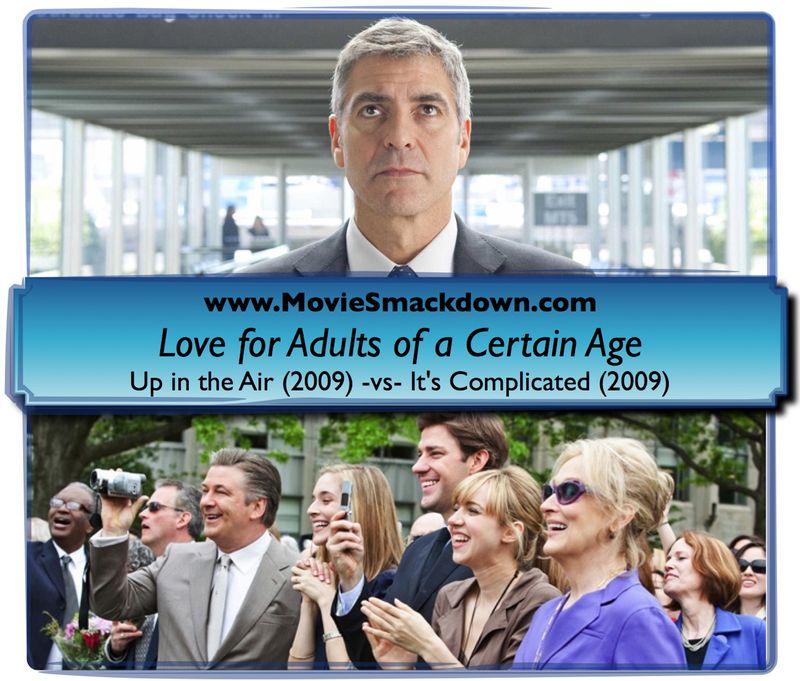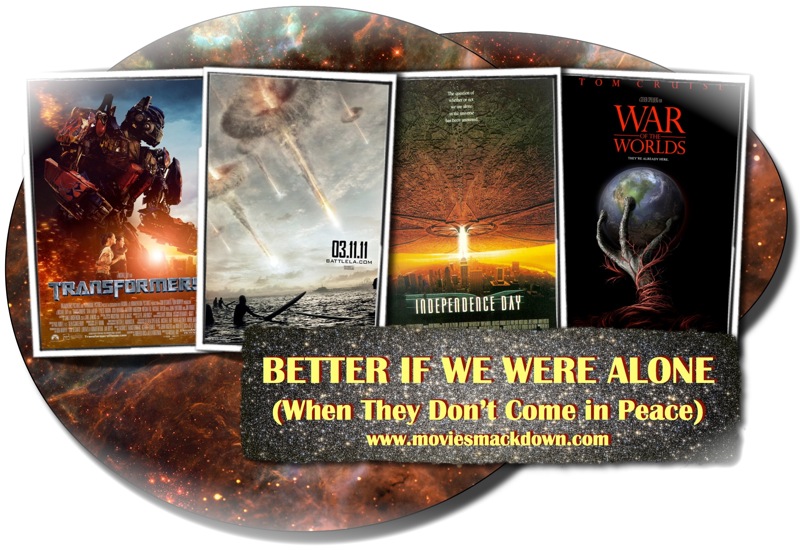
 The Smackdown
The Smackdown
They say love overcomes all obstacles, but time seems to be one of the most difficult. Time and time travel seem made for romance. Maybe that’s because there is more of a fantasy quality to it than strict science fiction. Finding two lovers who meet across time has been done before, but Hollywood loves to revisit this idea again and again.
This week, our challenger, Source Code, and our champion, Deja Vu, tackle the problem of finding love in the time continuum. In both cases, what starts out as a case of time-travel observation becomes something more of an obsession for the observer. And these films avoid the traditional paradoxes — like making your parents miss their big moment at the “Enchantment Under the Sea” dance — they do touch on some very interesting ideas of multiple timelines. When fighting insurmountable odds and time paradoxes, why not take the problem to a new level and try to find true love while you’re at it?
[singlepic id=608 w=320 h=240 float=right]
The Challenger
Source Code has all the story elements of an action movie. If it weren’t for the time travel element, it would be just another Jack Bauer crisis-of-the-week kind of thriller. But time travel is integral to the story. In this case, Jake Gyllenhaal plays Colter Stevens, a helicopter pilot working with the military on a top-secret project that can throw him into a computer simulation of the past for eight minutes. He must discover the identity of a terrorist who blew up a commuter train in Chicago that morning. But as he repeatedly visits the past, he finds this isn’t a simulation to him. He actually cares about Christina (Michelle Monaghan), the woman sitting across from him on the train.
[singlepic id=525 w=320 h=240 float=right]
The Defending Champion
Defending the time-travel-murder-mystery-love-story genre is Deja Vu, starring the ever-likable Denzel Washington. This one starts with a terrorist bombing of a New Orleans ferry as a way to get at that time-honored sci-fi question — if you could go back in time, could you also change the future? ATF Agent Doug Carlin (Washington) is recruited by an experimental surveillance unit using a program called “Snow White” to view the past. While they are ostensibly trying to pinpoint the bomber, Carlin becomes obsessed with Claire (Paula Patton), a murdered woman who’s van is used in the bombing. And he wonders if “Snow White” can be used to do more than view the past.
The Scorecard
As I mentioned earlier, time travel stories often work better as fantasy than science fiction. This is in part because the science in most time travel movies breaks down under close scrutiny. It’s better for the story if we just accept how it works and don’t try to pretend we understand it. Whether a military project that relies on the last eight minutes of a victim’s short term memory or a surveillance program using satellites, we should just nod and move on.
So, assuming the science of both stories is equally believable, we’re forced to take a look at the more conventional aspects of the film. Both Gyllenhaal and Washington are excellent leading men, and each one gives a convincing performance of a man discovering feelings of love in the course of investigating a woman’s death. There’s something maudlin about this most-unrequited love. But both actors pull it off without being sappy.
The leading ladies are likewise equally matched. Monaghan does a good job of being the stranger on the train to Gyllenhaal. But it’s never really clear how much of a past she has with the man who Gyllenhaal’s mind has leaped into. Is she a love interest? A friend? It’s not very clear. On the other hand, Patton’s performance of Claire is more clearly defined. She’s a victim (or a victim-to-be, depending on when you are in the film), so Washington’s feelings are more easily understood.
Source Code is only the second feature film to be directed by Duncan Jones. But following his 2009 film, Moon, with this thinking-man’s romance has only helped solidify his resume. Tony Scott is no stranger to directing action thrillers (or to working with Denzel Washington). His fast-cut action style helps him tell a strong story, and he’s got years of experience.
The Decision
This one gets decided on points because, the truth is, both of these films get their action going and keep it going. And they both manage to stick in and stick to a very credible love story. They are date movies, boys and girls, and they work. The men get to watch cool sci-fi toys at work and lots of things getting blown up. The women get to see requited love. I’m not saying this to be sexist because there are plenty of women out there who also like to see things blown up, and that sub-set of the audience will be in heaven with either choice.
For me, though, it came down to character and while Denzel Washington never turns in a bad performance, Jake Gyllenhaal nails his, too, and the man he’s playing has what they call “rooting value” out in Hollywood.
So, for the time being (pun intended), I have to go with Source Code because it’s got one thing going for it that Deja Vu doesn’t — a great premise in service of a sympathetic character. The unique nature of the top-secret project (which I won’t divulge here because it’s one helluva spoiler) is enough to tip this decision in favor of the challenger.
Wanna fight about it? There’s a snazzy new poll over to the right for you to express yourself. Take your best shot because, unlike these movies, there’s no do-overs here…




Dear sir,
That is a hard decision. I love both movies. i do disagree with Source Code being the winner, but 1st it is your choice and no one can take that choice away from you and 2nd I agree that it was a hard choice and my opinion is that Deja Vu is better, but that is my opinon.
Thank you for your time,
Scott
Haven´t seen source code, but the trailer reminded me Memento.
Thanks for the review.
Source Code wins this Smack for me, too. But if we put it up against Duncan Jones’s first effort, Moon, I would have to vote for that one.